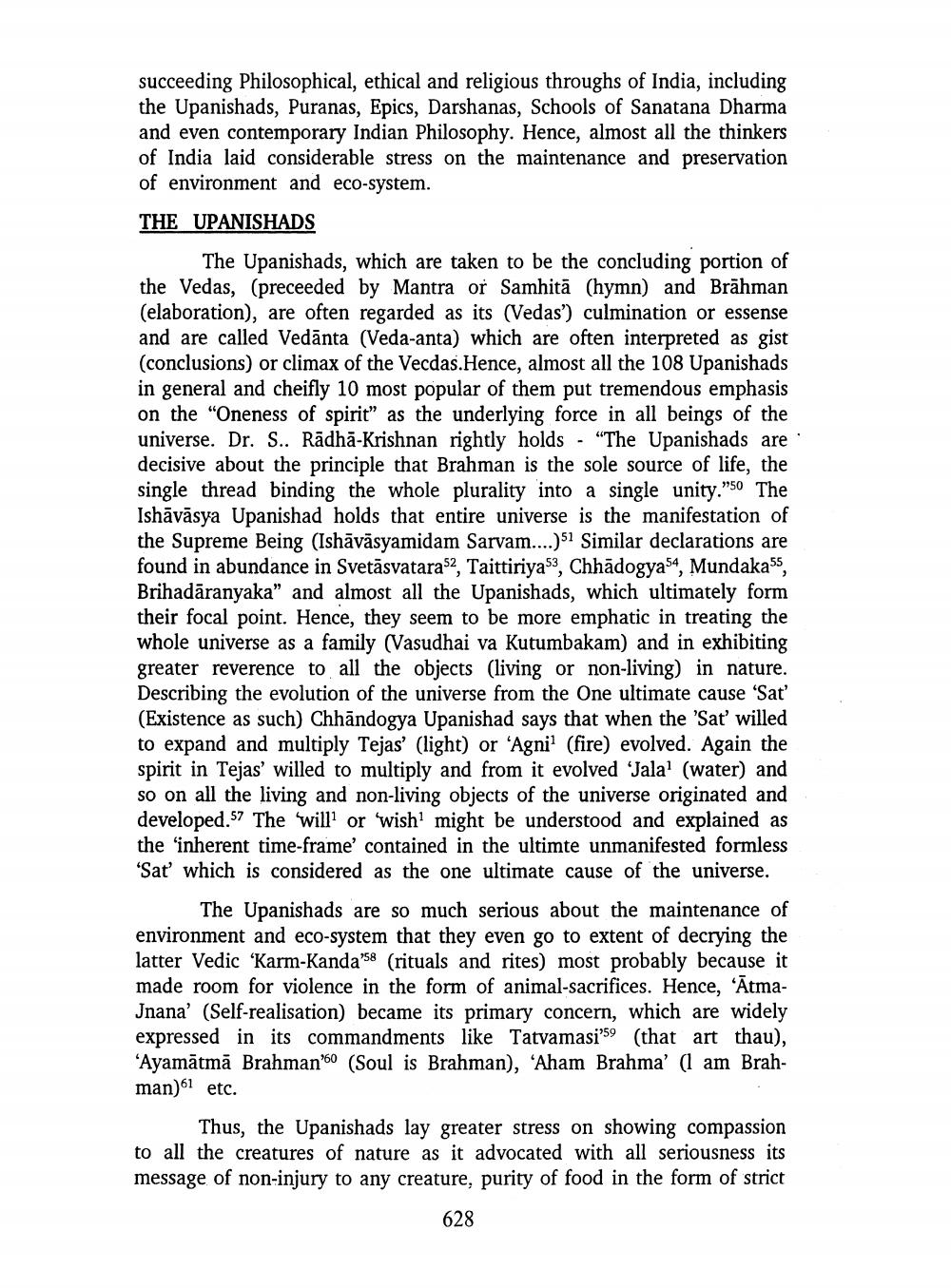________________
succeeding Philosophical, ethical and religious throughs of India, including the Upanishads, Puranas, Epics, Darshanas, Schools of Sanatana Dharma and even contemporary Indian Philosophy. Hence, almost all the thinkers of India laid considerable stress on the maintenance and preservation of environment and eco-system. THE UPANISHADS
The Upanishads, which are taken to be the concluding portion of the Vedas, (preceeded by Mantra or Samhitā (hymn) and Brāhman (elaboration), are often regarded as its (Vedas') culmination or essense and are called Vedānta (Veda-anta) which are often interpreted as gist (conclusions) or climax of the Vecdas.Hence, almost all the 108 Upanishads in general and cheifly 10 most popular of them put tremendous emphasis on the "Oneness of spirit" as the underlying force in all beings of the universe. Dr. S.. Rādhā-Krishnan rightly holds - "The Upanishads are decisive about the principle that Brahman is the sole source of life, the single thread binding the whole plurality into a single unity."50 The Ishāvāsya Upanishad holds that entire universe is the manifestation of the Supreme Being (Ishāvāsyamidam Sarvam....)51 Similar declarations are found in abundance in Svetāsvatara52, Taittiriyas3, Chhādogya54, Mundaka55, Brihadāranyaka" and almost all the Upanishads, which ultimately form their focal point. Hence, they seem to be more emphatic in treating the whole universe as a family (Vasudhai va Kutumbakam) and in exhibiting greater reverence to all the objects (living or non-living) in nature. Describing the evolution of the universe from the One ultimate cause 'Sat' (Existence as such) Chhāndogya Upanishad says that when the 'Sat' willed to expand and multiply Tejas' (light) or 'Agni (fire) evolved. Again the spirit in Tejas' willed to multiply and from it evolved 'Jala(water) and so on all the living and non-living objects of the universe originated and developed.57 The will' or 'wish might be understood and explained as the 'inherent time-frame' contained in the ultimte unmanifested formless 'Sat' which is considered as the one ultimate cause of the universe.
The Upanishads are so much serious about the maintenance of environment and eco-system that they even go to extent of decrying the latter Vedic 'Karm-Kanda'58 (rituals and rites) most probably because it made room for violence in the form of animal-sacrifices. Hence, 'AtmaJnana (Self-realisation) became its primary concern, which are widely expressed in its commandments like Tatvamasis9 (that art thau), 'Ayamātmā Brahman%60 (Soul is Brahman), 'Aham Brahma' (I am Brahman)61 etc.
Thus, the Upanishads lay greater stress on showing compassion to all the creatures of nature as it advocated with all seriousness its message of non-injury to any creature, purity of food in the form of strict
628




